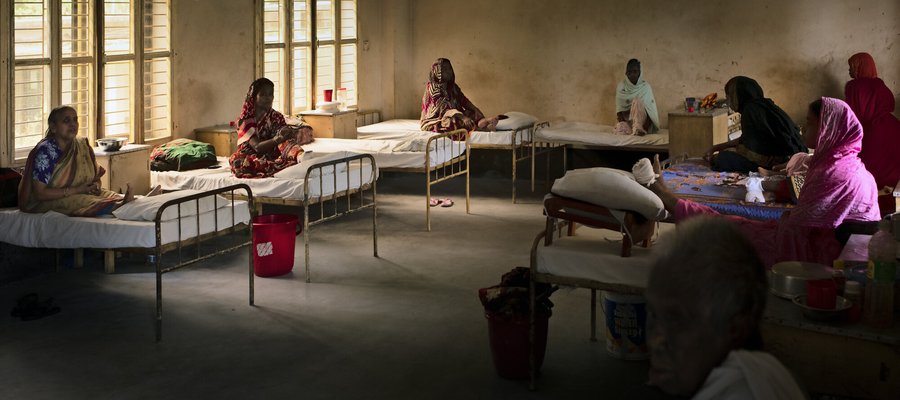Leprosy – a beacon for democracy

The United Nations has appointed Beatriz Miranda Galarza as the new Special Rapporteur against discrimination towards people affected by leprosy. In this exclusive interview, she reveals how human rights and democracy are fundamental prerequisites for eradicating the disease.
By Hans-Jørgen Knudsen, Country Leader, The Leprosy Mission in Denmark
Each year, more than 200,000 people are diagnosed with leprosy, while around four million live with severe disabilities because of late treatment. In 1873, the Norwegian doctor Armauer Hansen discovered the bacterial cause of leprosy, which is therefore also called Hansen's disease. The disease is particularly prominent in Asia, Africa, and South America, but recently cases have also been recorded in the United States.
With 123 discriminatory laws in 23 countries, the rights of people with leprosy are being suppressed. Since 2017, the UN has had a Special Rapporteur whose task is to promote legislation and initiatives that include people with leprosy in their communities, in the educational system and on the labor market.
Beatriz Miranda Galarza works as the coordinator of a research program on disability at the 17, Institute of Critical Studies in Mexico. We have summoned the UN's new Special Rapporteur to hear about her plans during this three-year mandate period.
A special family
Why did you apply for the post of UN Special Rapporteur? "I was born and raised in Ecuador in a family with seven siblings, five of whom have severe disabilities because of the Fragile X Syndrome, a hereditary disease. In joy and sorrow, my siblings have given me a more unconventional outlook on life, where coping mechanisms are developed through improvisation and creativity. My curiosity to understand what drives families with children with disabilities to overcome challenging circumstances led to studies in sociology and anthropology. For the past almost 30 years, I have worked in the field of disability, which also became the theme of my PhD. from The University of Leeds.
In 2010, I took on the task as study leader for a larger project in Indonesia on discrimination against people affected by leprosy. After similar tasks in other countries, I moved to Mexico City in 2018, where I work to preserve and use historical narratives about leprosy.”
Leprosy in a time of corona
Beatriz Miranda Galarza highlights the Covid-19 pandemic as a time that seriously impacted the prevention and control of leprosy. In 2021, the number of newly diagnosed cases increased by 10 percent compared to the previous year. "The pandemic revealed what people affected by leprosy have had to endure throughout centuries. Political and public decisions, then as now, were about protecting society from "the lepers" instead of involving them as equal citizens. Driven by man's fear of suffering and death, history seems to repeat itself compromising the human rights of vulnerable groups. Today, supported by the law, people with Hansen's disease can be excluded from marriage, education, employment, and participation in political decision-making processes.”
The role of civil society
What will you do about it? "In the analysis of the economic, political and social structures in countries that oppress people with leprosy, it is clear that the UN must persistently advocate for freedom of expression, freedom of religion, freedom of assembly and freedom of association. These basic democratic rights pave the way for access to health, education, and employment. But it won't be easy! Many of the countries with high prevalence of leprosy are also fragile states affected by war, conflict, and climate change.
I want to work for a strengthened civil society that can hold governments and authorities accountable for developing the policies and programs that are prerequisites for the eradication of leprosy.”
Human rights in the light of leprosy
The UN's special rapporteur continues: "There is a growing understanding of leprosy as a crossroads for other societal aspects, including gender, age, ethnicity, social class, faith and climate change. However, we need more knowledge about conditions that influence people affected by the disease, their families, and local communities. I will encourage governments and authorities to collect more relevant data, promote research and involve people with leprosy in the development of new policies.
I will also use my mandate to facilitate empowerment and mobilization of people affected by leprosy in the fight for democracy. It calls for further organization of self-help groups and local civil society organizations into national and international NGOs strengthening the voice of international leprosy federations.
Finally, I want to promote alliances and collaborations between human rights organisations, democracy advocates and researchers developing and disseminating evidence-based knowledge on social media, in the press and directly to political decision-makers.”
Beatriz Miranda Galarza was appointed at the 54th session of the United Nations in Geneva in October 2023 for a three-year term.